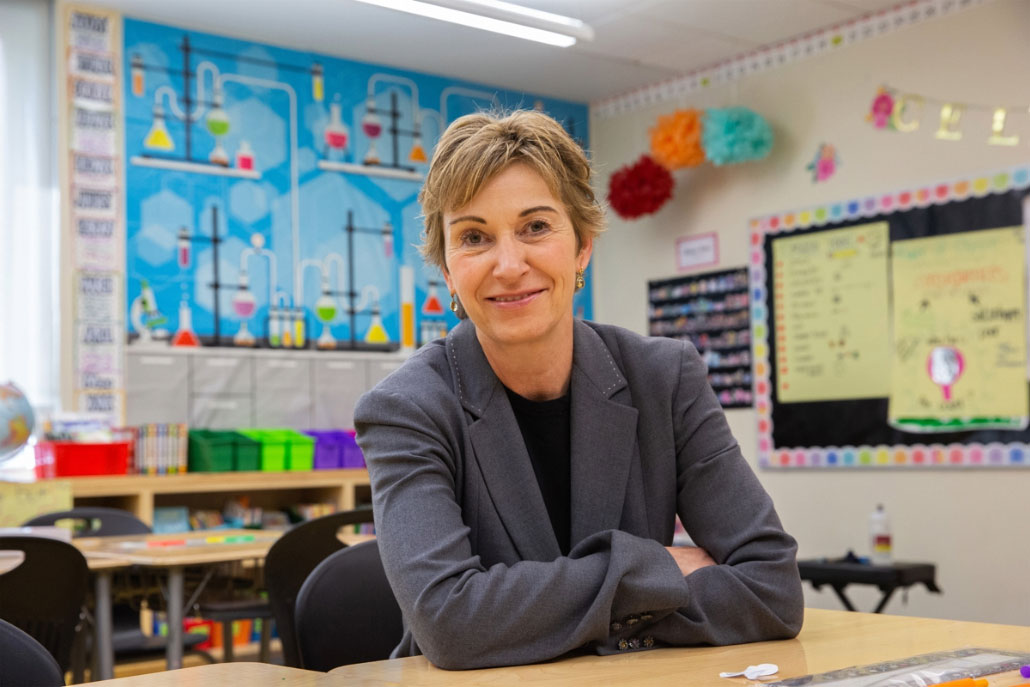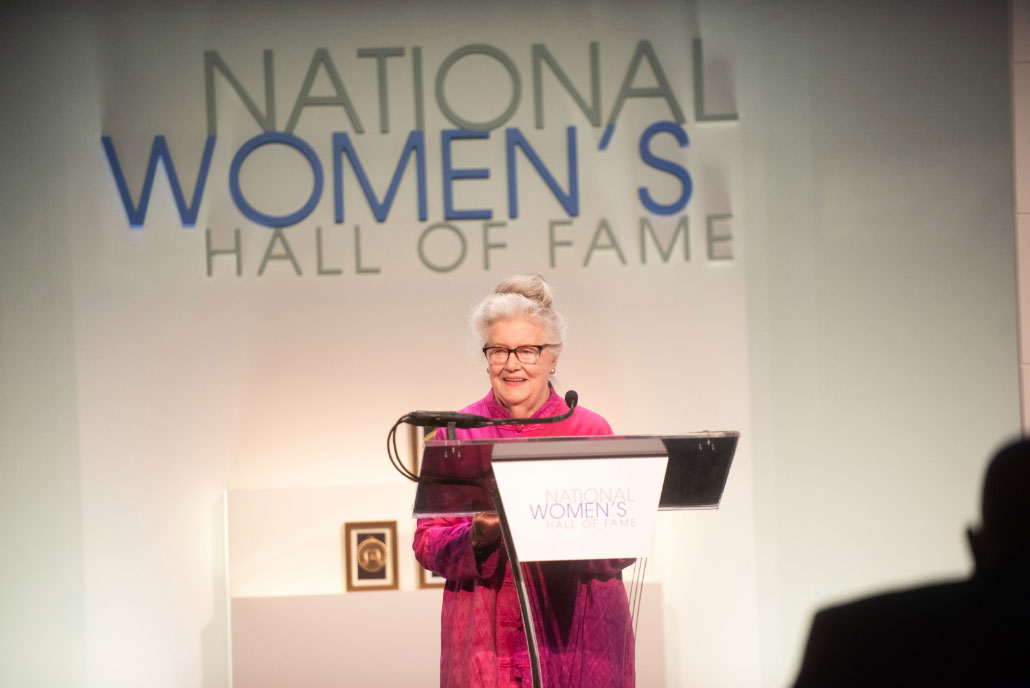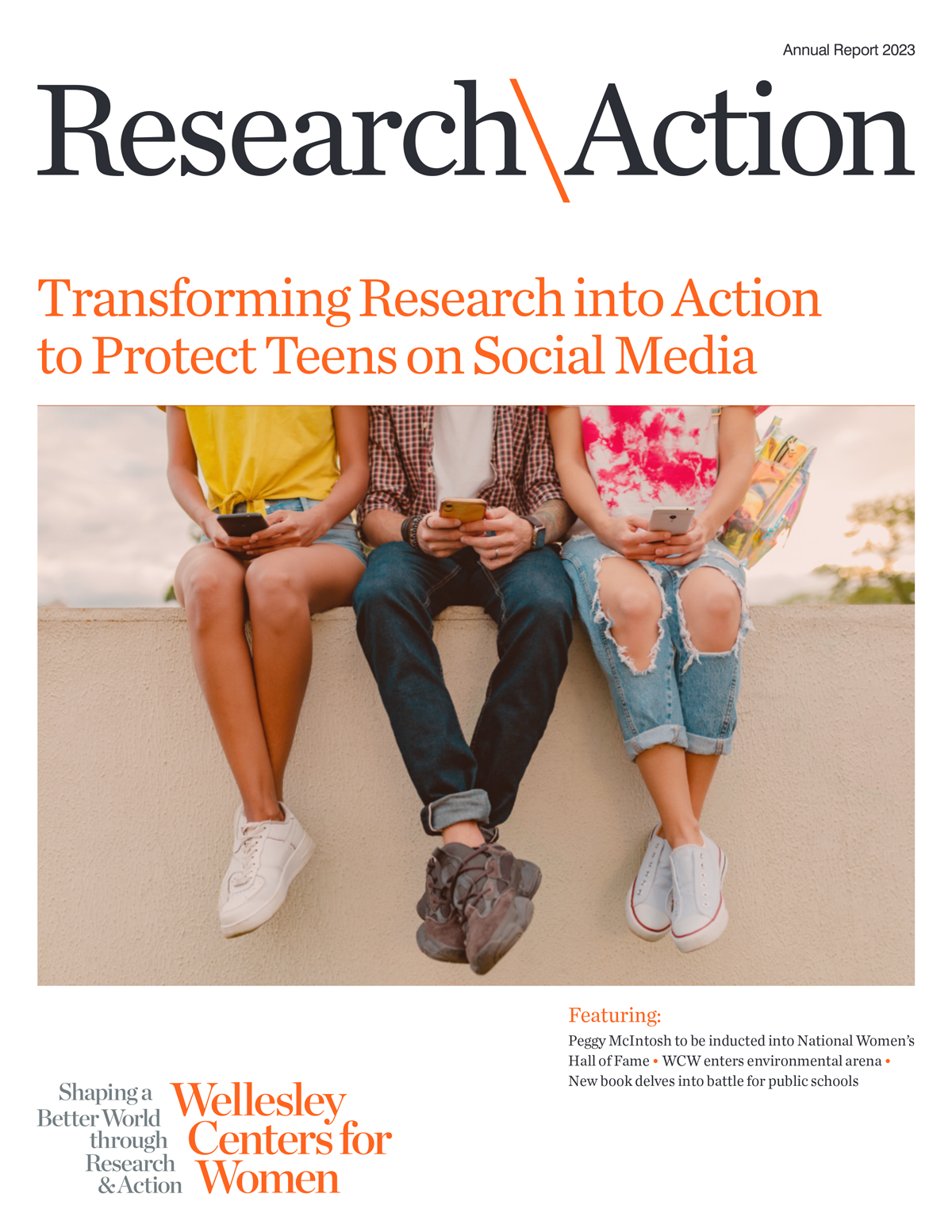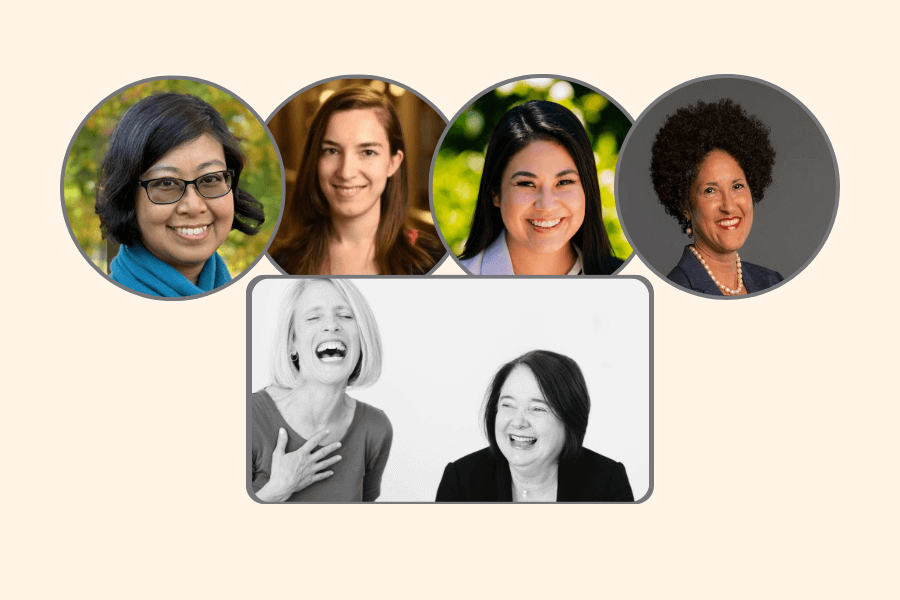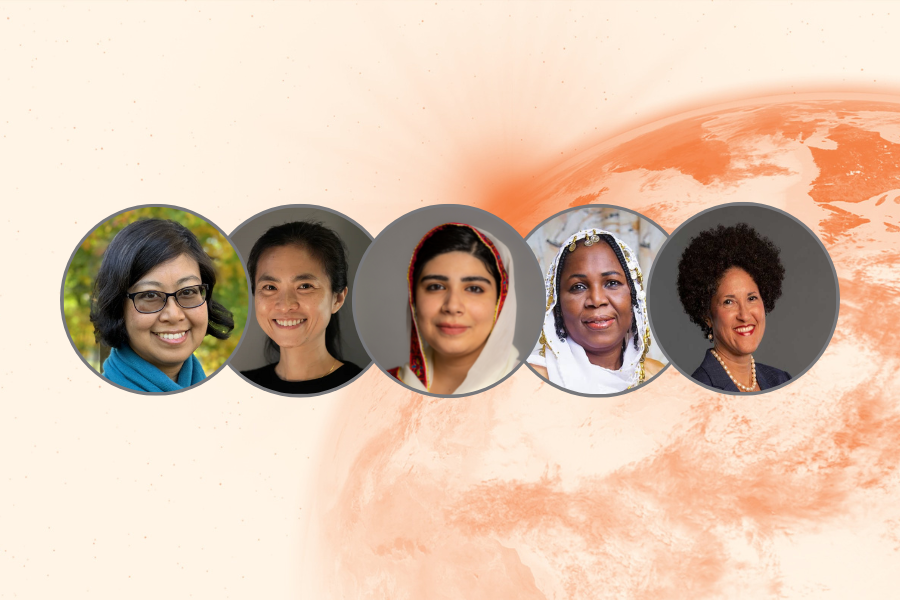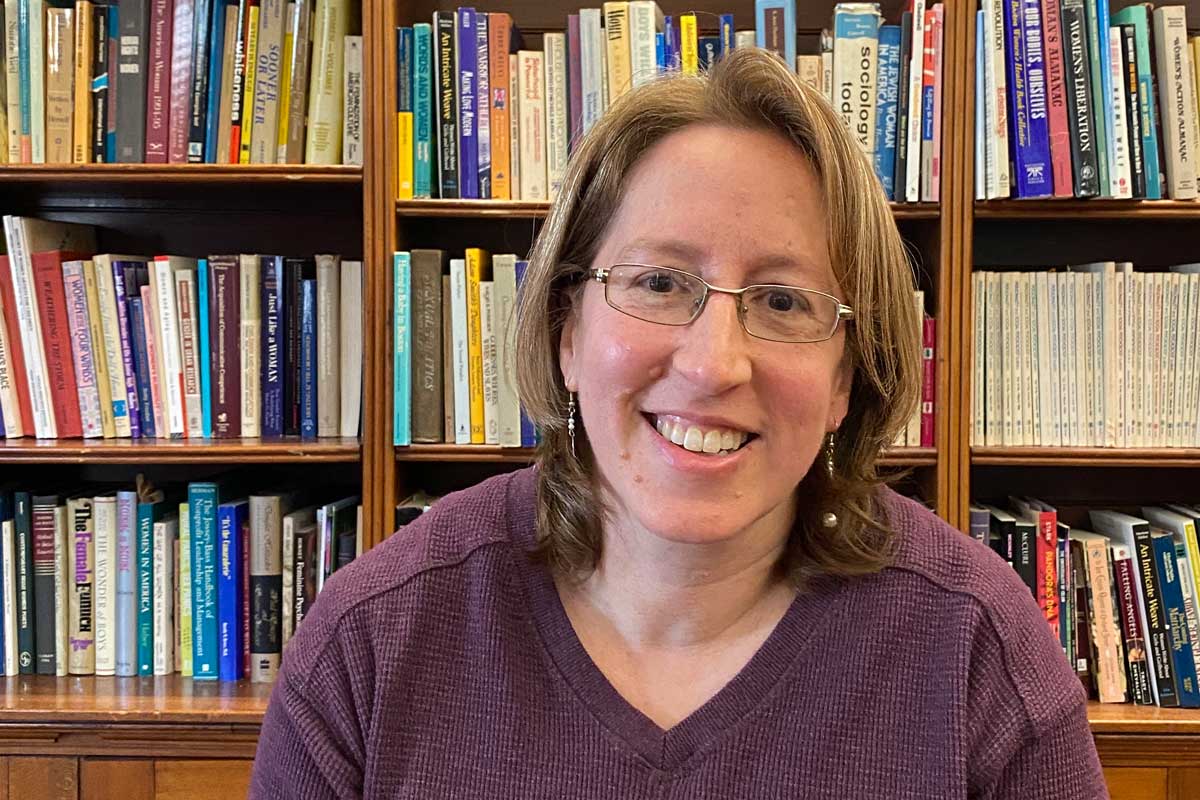Pamela C. Alexander, Ph.D.
Work published elsewhere
Alexander, P. C., Morris, E., Tracy, A., & Frye, A. (in press). Stages of change and the group treatment of batterers: A randomized clinical trial. Violence & Victims.
Alexander, P. C., Tracy, A., Radek, M., & Koverola, C. (2009). Predicting stages of change in battered women. Journal of Interpersonal Violence, 24, 1652-1672.
Alexander, P. C. (2009). Childhood trauma, attachment, and abuse by multiple partners. Psychological Trauma, 1, 78-88.
Alexander, P. C., & Morris, E. (2009). Stages of change in batterers and their response to treatment. In C. M. Murphy & R. D. Maiuro (Eds.), Motivational interviewing and readiness to change in intimate partner violence (pp. 133-158). New York: Springer Publishing.
Alexander, P. C., & Morris, E. (2008). Stages of change in batterers and their response to treatment. Violence & Victims, 23, 476-492.
Anderson, C., & Alexander, P. C. (2005). The effects of abuse on children's development: An attachment perspective. In A. Urquiza & F. Talley (Eds.), Handbook for the treatment of abused and neglected children. New York: Allyn & Bacon, Inc.
Alexander, P.C., Alexander, E.R. and Warner, S. (2005). Best Practices in Sexual Harassment Policy and Assessment. ARI Contractor Report 2005-01, U.S. Army Research Institute for the Behavioral and Social Sciences, Arlington, VA.
Schaeffer, C., Alexander, P.C., Bethke, K., & Kretz, L. (2005). Predictors of child abuse potential among military parents: Comparing mothers and fathers. Journal of Family Violence, 20, 123-129.
Alexander, P. C. (2003). Parent-child role reversal: Development of a measure and test of an attachment theory model. Journal of Systemic Therapies, 22, 31-44.
Alexander, P. C. (2003). Understanding the effects of child sexual abuse history on current couple relationships: An attachment perspective. In S. Johnson (Ed.), Attachment: A perspective for couple and family therapy (pp. 342 – 365). New York: Guilford Press.
Alexander, P. C., & Warner, S. (2003). Attachment theory and family systems theory as frameworks for understanding the intergenerational transmission of family violence. In P. Erdman & T. Caffery (Eds.), Attachment and family systems: Conceptual, empirical, and therapeutic relatedness (pp. 241-257). New York: Brunner/Routledge.
Brand, B. L., & Alexander, P. C. (2003). Coping with incest: The relationship between recollections of childhood coping and adult functioning in female survivors of incest. Journal of Traumatic Stress, 16, 285 – 293.
Loos, M. E., & Alexander, P. C. (2001). Dissociation and the processing of threat related information: An attachment theory perspective on maintenance factors in dissociative pathology. Maltrattamento e abuse all'infanzia, 3, 61-83.
Alexander, P. C., Teti, L., & Anderson, C. L. (2000). Child sexual abuse history and role reversal in parenting. Child Abuse & Neglect, 24, 829-838.
Alexander, P. C., Anderson, C. L., Brand, B., Schaeffer, C., Grelling, B. Z., & Kretz, L. (1998). Adult attachment and longterm effects in survivors of incest. Child Abuse & Neglect, 22, 45-61.
Alexander, P. C., & Anderson, C. L. (1997). Incest, attachment, and developmental psychopathology. In D. Cicchetti & S. L. Toth (Eds.), Rochester symposium on developmental psychology, Volume VIII: The effects of trauma on the developmental process. Rochester, NY: University of Rochester Press.
Brand, B., Warner, S. C., & Alexander, P. C. (1997). Coping with incest in adult female survivors. Dissociation, 9, 3-10.
Loos, M., & Alexander, P. C. (1997). Differential effects associated with self-reported histories of physical abuse, verbal abuse, and emotional neglect in a college sample. Journal of Interpersonal Violence, 12, 340-360.
Alexander, P. C. (1997). [Review of Resilient adults: Overcoming a cruel past]. Journal of Family Violence.
Anderson, C. L., & Alexander, P. C. (1996). The relationship between attachment and dissociation in adult survivors of incest. Psychiatry, 59, 240-254.
Cole, P. M., Alexander, P. C., & Anderson, C. L. (1996). Dissociation in typical and atypical development: Examples from father-daughter incest survivors. In L. K. Michelson & W. J. Ray (Eds.), Handbook of dissociation: Theoretical, empirical and clinical perspectives. Plenum.
Alexander, P. C. (1995). Une conceptualization systemique de l’inceste. (Translated by C. Heim & M. Silvestre), Therapie Familiale, 16, 403-414.
Alexander, P. C., & Anderson, C. L. (1994). An attachment approach to psychotherapy with the incest survivor. Psychotherapy, 31, 665-674.
Alexander, P. C., & Schaeffer, C. M. (1994). A typology of incestuous families based on cluster analysis. Journal of Family Psychology, 8, 458-470.
Alexander, P. C. (1993). The differential effects of abuse characteristics and attachment in the prediction of long-term effects of sexual abuse. Journal of Interpersonal Violence, 8, 346-362.
Hill, C. E., & Alexander, P. C. (1993). Process research in the treatment of adult victims of childhood sexual abuse. Journal of Interpersonal Violence, 8, 415-427.
Gordon, M., & Alexander, P. C. (1993). Introduction to the special issue on research on treatment of adults sexually abused in childhood. Journal of Interpersonal Violence, 8, 307-311.
Alexander, P. C. (1992). Application of attachment theory to the study of sexual abuse. Journal of Consulting and Clinical Psychology, 60, 185-195.
Alexander, P. C. (1992). Introduction to the special section on the adult survivor of childhood sexual abuse. Journal of Consulting and Clinical Psychology, 60, 164-165.
Edwards, J., & Alexander, P. C. (1992). The contribution of family background to the long-term adjustment of women sexually abused as children. Journal of Interpersonal Violence, 7, 306-320.
Follette, V. M., & Alexander, P. C. (1992). Dating violence: Current and historical correlates. Behavioral Assessment, 14, 39-52.
Alexander, P. C., Moore, S., & Alexander, E. R. (1991). What is transmitted in the intergenerational transmission of violence? Journal of Marriage and the Family, 53, 657-667.
Alexander, P. C., Neimeyer, R. A., & Follette, V. M. (1991). Group therapy for women sexually abused as children: A controlled study and investigation of individual differences. Journal of Interpersonal Violence, 6, 218-231.
Alexander, P. C. (1991). The role of the extended family in the evaluation and treatment of intrafamilial sexual abuse. In W. N. Friedrich (Ed.), Treatment of sexually abused children: A psychotherapy casebook (pp. 214-233). New York: W. W. Norton.
Neimeyer, R. A., Fiedler, J. M., Harter, S., & Alexander, P. C. (1991). Repertory grid measures of group process in the treatment of incest survivors. In J. W. Scheer & A. Catina (Eds.), The repertory grid technique: Clinical applications. Frankfurt: Huber.
Follette, V. M., Alexander, P. C., & Follette, W. C. (1991). Individual predictors of outcome in group treatment for incest victims. Journal of Consulting and Clinical Psychology, 59, 150-155.
Neimeyer, R. A., Harter, S., & Alexander, P. C. (1991). Group perceptions as predictors of outcome in the treatment of incest survivors. Journal of Psychotherapy Research, 1, 149-158.
Alexander, P. C. (1991). [Review of Therapy for adults molested as children: Beyond survival]. Journal of Interpersonal Violence, 6, 396-398.
Alexander, P. C. (1990). Interventions with incestuous families. In S. W. Henggeler & C. M. Borduin (Eds.), Family therapy and beyond: A multisystemic approach to treating the behavior problems of children and adolescents (pp. 324-344). Pacific Grove, CA: Brooks/Cole.
Alexander, P. C., & Neimeyer, G. J. (1989). Constructivism and family therapy. International Journal of Personal Construct Psychology, 2, 111-121.
Alexander, P. C., Neimeyer, R. A., Follette, V. M., Moore, M., & Harter, S. (1989). A comparison of group treatments for women sexually abused as children. Journal of Consulting and Clinical Psychology, 57, 479-483.
Harter, S., Neimeyer, R. A., & Alexander, P. C. (1989). Personal construction of family relationships: The relation of commonality and sociality to family satisfaction for parents and adolescents. International Journal of Personal Construct Psychology, 2, 123-142.
Harter, S., Alexander, P. C., & Neimeyer, R. A. (1988). Longterm effects of incestuous child abuse in college women: Social adjustment, social cognition and family characteristics. Journal of Consulting and Clinical Psychology, 56, 5-8.
Alexander, P. C. (1988). The therapeutic implications of family cognitions and family constructs. Journal of Cognitive Psychotherapy, 2, 219-236.
Alexander, P. C. & Follette, V. (1987). Personal construct theory in the group treatment of incest. In R. A. Neimeyer & G. J. Neimeyer (Eds.). A casebook of personal construct therapy (pp. 211-229). New York: Springer.
Alexander, P. C. & Lupfer, S. (1987). Family characteristics and longterm consequences associated with sexual abuse. Archives of Sexual Behavior, 16, 235 - 246.
Alexander, P. C. (1986). Procrustes himself was tortured: A reply to 'The Procrustean Bed'. Family Process, 25, 305 - 308.
Alexander, P. C. (1985). A systems theory conceptualization of incest. Family Process, 24, 79 - 88.

